Autumn is getting close in Nashville – you can practically smell the pumpkin pies baking and hear the sounds of backyard football games. That means you can probably smell the aroma of rotting leaves and see the buildup soon to overtake your lawn as well. What should you do with the leaves falling aimlessly to the ground, and if only there was a way to deal with them in a helpful and environmentally friendly way. Luckily, there is. While we here at the Parke Company are happy to take away anything you might have stored in those heavy leaf bags, by saving them, you can create something infinitely more useful: a compost area.
What to Know About Composting
Reuse, Reduce and Recycle
At its simplest form, a compost garden is just a collection of food and yard waste, kept moist and allowed to aerate. After a period of weeks or months, depending on the type of composting used and the materials involved, the waste will break down into a handy substance that can be used in a variety of ways, including as a soil additive, a conditioner, or a fertilizer. Since the project can take as long as six months, if you get started now, your compost will be ready for the spring planting and growing seasons. While the products of your fall cleanup are probably going to be the most common ingredients, you can also throw in the clippings from mowing the lawn, scraps from the table (just not meat or bones), and even things such as cardboard and wood chips. The important thing is to get a mix of nitrogen and carbon based materials, as too much of either will throw off the balance of the compost. The other main ingredient is oxygen, which is why a compost pile needs to be turned regularly. The oxygen provides a fuel for the breakdown process, as does the moisture from a regular watering, although you can always let the natural rainfall handle that aspect.
Reaping the Benefits
There are several types of composting available to you. The most common one involves an enclosed area, usually a chicken-wire fence covered with a tarp. When constructing it, start on a bare patch of dirt to allow microorganisms and other decomposers an easy way of reaching the materials. You should layer wet and dry materials, and look into breaking up some of the tougher materials. For instance, corn cobs take a very long time to decompose, so you might want to cut them into smaller chunks to aid that process. Additionally, larger, flatter objects, like cardboard or a large pile of leaves, need to be shredded before getting added.
If you do end up with a large amount of leaves, you might want to look into several leaf-only composting options. For one, you can create a compost pile made only of leaves, which includes a layer of dirt between every couple of inches of leaves. This will take the longest amount of time to fully compost, and won’t provide the same number of nutrients as a normal compost, but it still has its benefits as a soil additive. You can also use the leaves to make a sort of tea bag, which you can then steep in a barrel of water for a couple of days. After that, remove the bag and the water has now become a healthy, nutrient-rich drink you can use to water your plants with.
If the idea of composting is something that intrigues you, or you just have more yard waste than you know what to do with, you can always call the Parke Company to help you get started
